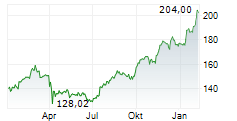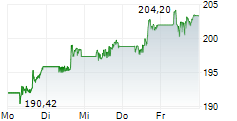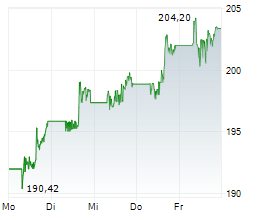
NEW BRUNSWICK (dpa-AFX) - Johnson & Johnson (JNJ) announced results from the Phase 3 CEPHEUS study demonstrating a significant clinical improvement with DARZALEX FASPRO (daratumumab and hyaluronidase-fihj) in combination with bortezomib, lenalidomide and dexamethasone (D-VRd) in the treatment of patients with newly diagnosed multiple myeloma (NDMM) who are transplant ineligible (TIE) or for whom transplant was not planned as initial therapy (transplant deferred). The data showed significant improvement in minimal residual disease (MRD) negativity rate, progression-free survival (PFS) and complete response (CR) or better rate.
At a median follow-up of 58.7 months, the primary endpoint was met, with overall MRD-negativity rate at a sensitivity of 10-5 (no cancer cells detected within 100,000 bone marrow cells) of 60.9 percent for patients receiving D-VRd and 39.4 percent for VRd. The study also demonstrated that D-VRd significantly reduced the risk of progression or death by 43 percent vs VRd. The median progression-free survival was not reached for D-VRd vs 52.6 months for VRd.
The DARZALEX FASPRO-based quadruplet regimen, compared to VRd, also significantly increased the depth of response with higher rates of CR or better. The CR or better rate was 81.2 percent with D-VRd vs 61.6 percent with VRd. Overall survival data are not yet mature. The overall safety profile of D-VRd was consistent with the known safety profiles for DARZALEX FASPRO and VRd.
For More Such Health News, visit rttnews.com.
Copyright(c) 2024 RTTNews.com. All Rights Reserved
Copyright RTT News/dpa-AFX
© 2024 AFX News




